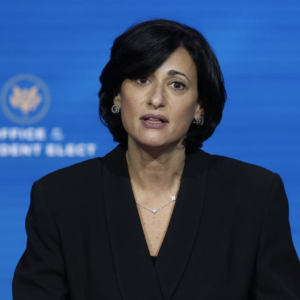With vaccinations in the forefront of our collective mind, why is one of the key agencies charged with making vaccines available to Americans creating unnecessary and complicated barriers to new pneumococcal vaccinations for older adults?
Two new pneumococcal vaccines were approved in early summer 2021 by the FDA. Now, more than six months later, we are still left with unclear guidance on who should receive what vaccine when, and no definitive timeline as to when we might get those answers.
The CDC’s Advisory Committee on Immunization Practices (ACIP) waited until October 2021 to vote on a recommendation for use of the newly approved vaccines. Despite strong support from advocacy groups as well as members of ACIP to widen age-based eligibility for the vaccine to all those 50 and over, the committee rejected that strategy and kept it only for those 65 and over. The CDC’s own evidence discussed at multiple meetings showed that widening the age-based eligibility for pneumococcal vaccines could have saved lives and saved costs.
Despite that missed opportunity, the official recommendation should have been straightforward. It is anything but. Released at the end of January—yet another long delay that has kept new vaccines from being deployed until well after the start of flu and pneumonia season—the recommendation is confusing at best for many physicians and patients.
The recommendation does nothing to clarify what physicians and patients should do when it comes to those who have previously been vaccinated with older vaccines against pneumonia—and many older adults have already received at least one pneumococcal vaccine. The recommendation addresses only those who have not previously received a pneumococcal vaccine, or whose vaccine history is unknown.
Due to that lack of clarity, there are now multiple scenarios that would cause questions about who is eligible for an updated vaccination, and when. Should a patient who was previously vaccinated be given one of the new vaccines? Which one? After what length of time? Since the new vaccines protect older adults against more strains of pneumococcal disease than older ones, these are questions that should be answered quickly.
This confusion will undoubtedly mean fewer people are better protected—missing the point entirely of ongoing research and development of new vaccines. More will stand the chance of contracting a strain of pneumonia that could have been prevented.
When older Americans and their healthcare providers needed clarity, they were handed more confusion.
We only wish that the ACIP and the CDC treated pneumonia with the same degree of commitment and hard work that they have done for COVID-19. There, they moved with great speed and certainty with the result being millions of vaccinated Americans. We need the same response in providing older adults full access to the best vaccines against pneumonia.
The CDC can and must do better.

